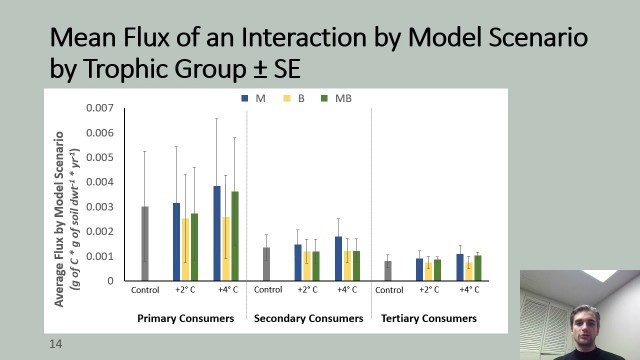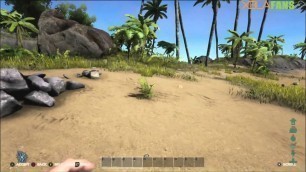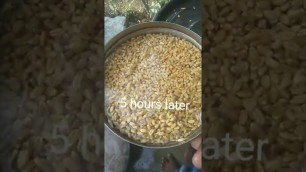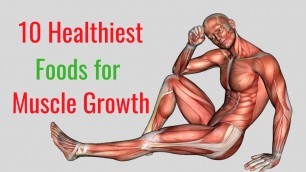

13:31
Jan 11, 2022
0
1
'Title: Modeling soil carbon cycling in boreal peatlands under future climate warming scenarios Abstract: Little is known about how warming will affect carbon inputs and energy flux in peatlands, the largest terrestrial sink of carbon. At the level of the individual organism, the Metabolic Theory of Ecology (MTE) predicts that metabolic rate will increase with warming, which can lead to either an increase or a decrease in species’ growth and reproduction capacity (i.e., population biomass). We investigated the effects of warming on the soil C cycle at the level of the individual and the population. We hypothesize that fluxes of energy between pools defined by a peatland soil food web will change under modelled warming conditions, affecting the estimated average metabolic rate of populations of individuals linked by trophic interactions and the estimated average biomass of trophic levels (nodes); we further predict that these changes in metabolic rate and biomass will have corresponding effects on energy cycling throughout the peatland soil food web. We estimated C flux for the entire soil community of a peatland site in Northern Ontario under three warming scenarios: 1) metabolic (M) increases under warming at the level of the individual, 2) changes in population biomass (B) under warming, and 3) metabolic plus population level changes in biomass (MB) under warming. We parameterized each scenario with empirical data from a field experiment called BRACE (Biological Response to A Changing Ecosystem); this site represents a typical boreal, sparsely forested, Sphagnum-dominated peatland. We then quantified and compared total C flux, and flux at each trophic level under warming scenarios at ambient, +2°C and +4°C. The effects of warming on modelled total system energy flux was greatest in the MB warming scenario and was least in the M warming scenario. In each model scenario, the effects of warming on the flux of a single interaction are greater for interactions that include more basal nodes from the soil food web. These findings suggest that warming may increase C cycling in Sphagnum-dominated peatland sites, potentially shifting peatlands from being carbon sinks to becoming carbon sources.'
Tags: ecology , climate change , University of Western Ontario
See also:

















comments